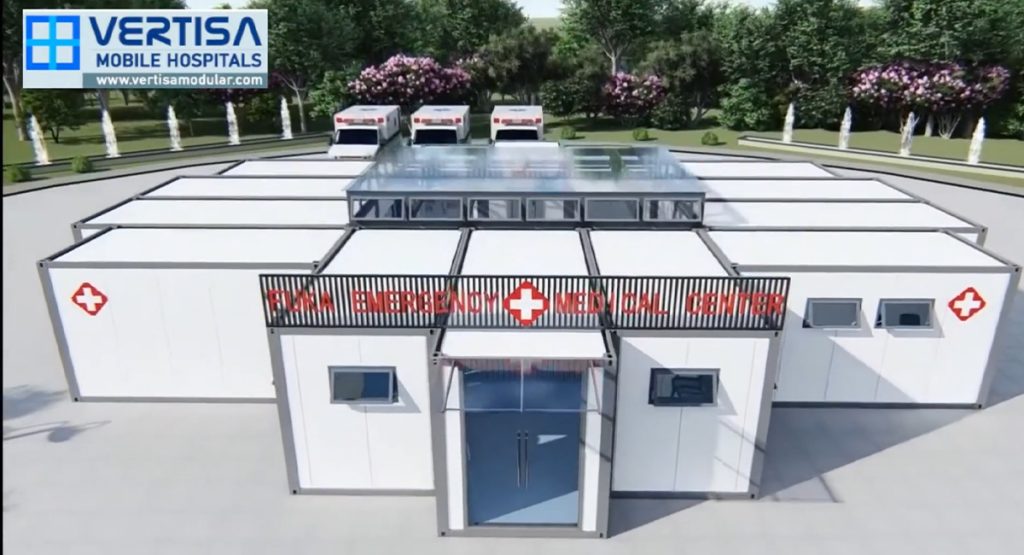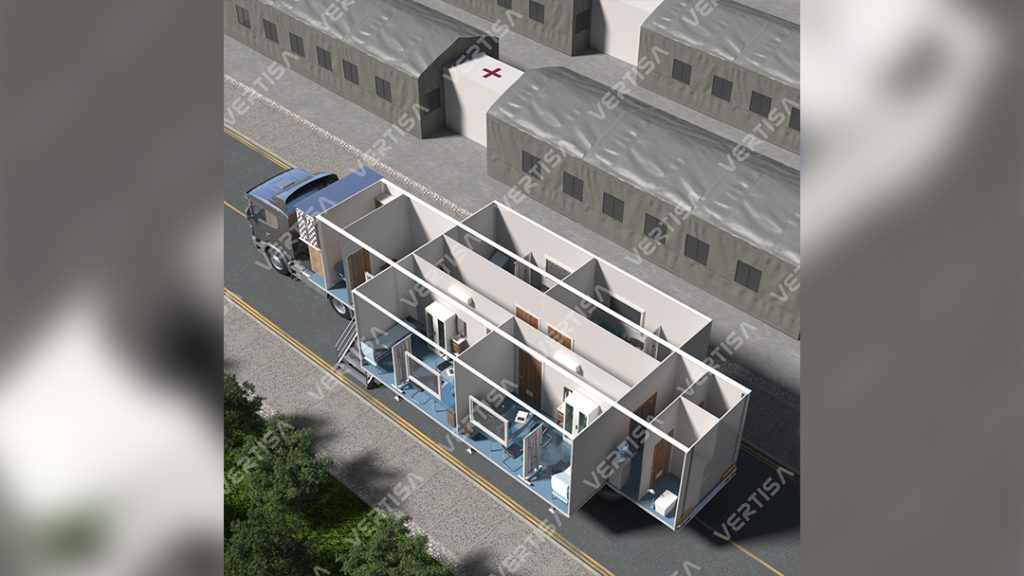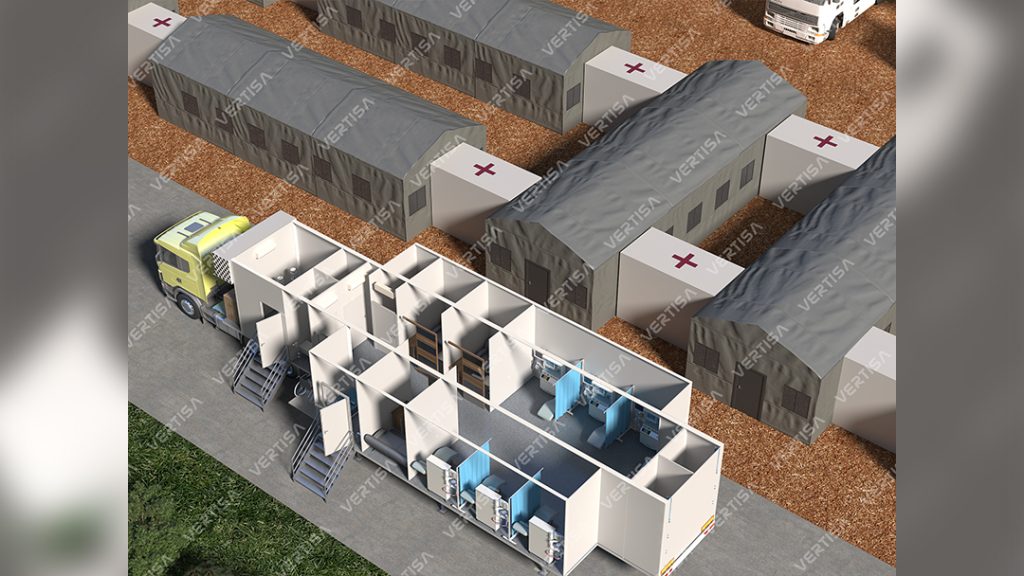Table of Contents:
- Introduction to Mobile Field Hospitals: Bridging Gaps in Emergency Healthcare
- The Vital Role of Mobile Field Hospitals
- Mobilizing Healthcare in Crisis Situations
- Saving Lives in Challenging Environments
- Advantages of Mobile Field Hospitals: Enhancing Emergency Medical Response
- Rapid Deployment of Critical Medical Services
- Comprehensive Care in Disaster Zones
- Flexible Solutions for Various Emergencies
- Key Features of Mobile Field Hospitals: A Detailed Examination
- Advanced Medical Facilities in a Compact Form
- Mobility and Adaptability for Critical Situations
- Telemedicine Integration for Remote Expertise
- Operational Excellence: Overcoming Challenges in Mobile Field Hospital Deployments
- Efficient Logistics and Resource Management
- Regulatory Compliance for Portable Healthcare
- Sustainability and Long-term Viability
- The Future of Mobile Field Hospitals: Innovations Shaping Emergency Healthcare
- Cutting-Edge Diagnostics and Treatments
- Artificial Intelligence in Emergency Medicine
- Data-Driven Insights for Precision Care
Introduction to Mobile Field Hospitals: Bridging Gaps in Emergency Healthcare
The Vital Role of Mobile Field Hospitals
Mobile field hospitals stand as lifelines in emergency healthcare, offering rapid response and critical medical services in times of crisis. These deployable units are essential in bridging gaps and ensuring that healthcare reaches those in need, even in the most challenging environments.
Mobilizing Healthcare in Crisis Situations
The concept of mobile field hospitals is a beacon of hope in crisis situations. These units, equipped with advanced medical technologies and staffed by skilled professionals, provide a wide array of healthcare services right where they are needed most, be it in disaster-stricken areas or regions lacking proper healthcare infrastructure.
Saving Lives in Challenging Environments
The ability of mobile field hospitals to operate effectively in challenging environments saves lives. Whether it’s responding to natural disasters, pandemics, or conflicts, these hospitals offer a critical safety net, ensuring that the injured and ill receive timely and quality care.
Advantages of Mobile Field Hospitals: Enhancing Emergency Medical Response
Rapid Deployment of Critical Medical Services
Mobile field hospitals are designed for rapid deployment. Their agility and readiness mean that they can be on-site swiftly, providing immediate medical care in situations where time is of the essence.
Comprehensive Care in Disaster Zones
Disaster zones often lack the necessary healthcare infrastructure to cope with the influx of patients. Mobile field hospitals step in to provide comprehensive care, from basic medical services to surgical procedures, mitigating the impact of disasters on public health.
Flexible Solutions for Various Emergencies
The adaptability of mobile field hospitals makes them suitable for a range of emergencies. Whether it’s a disease outbreak, a natural disaster, or a humanitarian crisis, these hospitals can be configured to meet specific medical needs, ensuring that no emergency goes unanswered.
Key Features of Mobile Field Hospitals: A Detailed Examination
Advanced Medical Facilities in a Compact Form
Mobile field hospitals pack advanced medical facilities into a compact and transportable form. These units can include operating rooms, diagnostic equipment, and pharmacy services, offering a wide spectrum of medical treatments in a highly mobile environment.
Mobility and Adaptability for Critical Situations
The mobility and adaptability of mobile field hospitals are key features. Their modular design allows for rapid adaptation to various medical scenarios, ensuring that they can function effectively in diverse and challenging environments.
Telemedicine Integration for Remote Expertise
Many mobile field hospitals integrate telemedicine technology, enabling remote consultations with specialists. This ensures that patients receive expert medical opinions, even in areas where specialized professionals may not be physically present.

Operational Excellence: Overcoming Challenges in Mobile Field Hospital Deployments
Efficient Logistics and Resource Management
Operating a mobile field hospital requires meticulous logistics planning. Efficient route management, resource allocation, and maintenance schedules are essential to ensure uninterrupted services, particularly in remote or disaster-affected areas.
Regulatory Compliance for Portable Healthcare
Mobile field hospitals must comply with healthcare regulations and standards, just like traditional healthcare facilities. Ensuring adherence to local and national regulations is crucial for patient safety and the quality of care provided.
Sustainability and Long-term Viability
Sustainability is pivotal for the long-term success of mobile field hospitals. Effective resource management, funding strategies, and partnerships contribute to their operational viability and continuity, ensuring that they remain ready to respond to emergencies.
The Future of Mobile Field Hospitals: Innovations Shaping Emergency Healthcare
Cutting-Edge Diagnostics and Treatments
As medical technology continues to advance, mobile field hospitals can integrate even more cutting-edge diagnostic tools and treatment options. Patients can receive specialized care and medical procedures directly within these deployable facilities.
Artificial Intelligence in Emergency Medicine
Artificial intelligence is poised to play a significant role in emergency healthcare. Mobile field hospitals can leverage AI for tasks such as medical diagnostics, patient monitoring, and treatment recommendations, enhancing the efficiency and effectiveness of care delivery.
Data-Driven Insights for Precision Care
Mobile field hospitals can harness data analytics to provide precision healthcare services. Patient data collected during emergencies can offer insights into health trends, enabling tailored interventions and treatments for better patient outcomes.
Efficient Logistics and Resource Management
Operating a mobile field hospital in dynamic and challenging environments demands efficient logistics and resource management. These hospitals must be strategically positioned to respond quickly to emergencies while considering factors like accessibility and proximity to affected areas. Every minute counts in emergency situations, making it crucial to have well-defined logistics plans in place.
Resource management is equally vital. Ensuring a steady supply of medical equipment, pharmaceuticals, and other essential supplies is essential. Rigorous planning includes considerations for fuel management, waste disposal, and the availability of trained personnel. Additionally, ongoing maintenance schedules are critical to keeping equipment and facilities in optimal working condition.
Regulatory Compliance for Portable Healthcare
Delivering healthcare services through mobile field hospitals requires adherence to rigorous healthcare regulations and standards. These standards exist to safeguard patient safety, privacy, and the quality of care provided, regardless of the care setting.
Mobile field hospitals must meet these regulatory requirements while operating in various locations, each potentially subject to different regulations. Achieving regulatory compliance on wheels necessitates careful planning, thorough training of medical staff, and the integration of standardized operational protocols. Compliance is non-negotiable when providing healthcare, and mobile field hospitals must consistently meet these high standards.
Sustainability and Long-term Viability
While mobile field hospitals excel in providing rapid emergency healthcare, their long-term viability relies on sustainability. Sustainable practices ensure that these hospitals can continue to function effectively and be prepared for future emergencies.
Resource management plays a significant role in sustainability. Efficient resource utilization reduces waste and ensures that essential supplies are available when needed most. Additionally, establishing funding strategies and partnerships with humanitarian organizations, governments, and donors can help secure the financial resources required to sustain mobile field hospitals’ operations.
Furthermore, considering environmental sustainability is essential. Implementing eco-friendly practices, such as energy-efficient systems and waste reduction, minimizes the ecological footprint of these hospitals. Sustainability efforts not only benefit the environment but also contribute to cost-effectiveness and operational continuity.
The Future of Mobile Field Hospitals: Innovations Shaping Emergency Healthcare
As we look ahead, several innovations are poised to shape the future of mobile field hospitals and emergency healthcare delivery:
- Cutting-Edge Diagnostics and Treatments: Advanced diagnostic tools, telemedicine capabilities, and treatments will become increasingly integrated into mobile field hospitals. Patients will have access to specialized care and medical procedures directly within these deployable facilities, reducing the need for patient transfers.
- Artificial Intelligence (AI) in Emergency Medicine: AI-powered technologies will play a significant role in enhancing emergency healthcare. Mobile field hospitals can leverage AI for tasks such as medical diagnostics, patient monitoring, and treatment recommendations. AI-driven insights will enable healthcare providers to make quicker and more accurate decisions, ultimately improving patient outcomes.
- Data-Driven Insights for Precision Care: The collection and analysis of patient data during emergencies will provide valuable insights into health trends and community needs. These insights will enable tailored interventions and treatments, ensuring that patients receive the most appropriate care based on their unique circumstances.
In conclusion, mobile field hospitals are at the forefront of emergency healthcare, providing critical medical services where they are needed most. Their ability to rapidly deploy, deliver comprehensive care, and adapt to various emergency scenarios makes them indispensable in crisis situations. However, their effectiveness relies on efficient logistics, regulatory compliance, and sustainability practices.
As technology continues to advance, mobile field hospitals will evolve to offer even more advanced healthcare solutions. Cutting-edge diagnostics, AI-driven medical support, and data-driven precision care are just a few of the innovations shaping the future of emergency healthcare. These advancements ensure that mobile field hospitals remain at the forefront of delivering high-quality medical services in times of crisis, ultimately saving lives and improving the resilience of communities worldwide.



